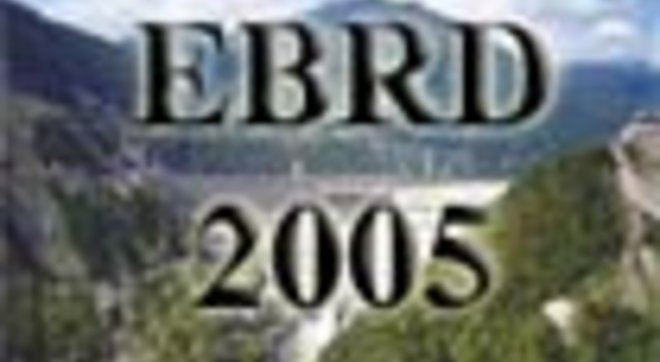EBRD is providing funding for several projects in Croatia, such as the Zagreb Wastewater Treatment Plant, the Karlovac Wastewater Treatment Plant, and part of the Rijeka-Zagreb Motorway.
- Organizacija
- Aktivnosti
- Baza znanja

EBRD is providing funding for several projects in Croatia, such as the Zagreb Wastewater Treatment Plant, the Karlovac Wastewater Treatment Plant, and part of the Rijeka-Zagreb Motorway.
Belgrade, 22-23rd of May 2005.
The European Bank for Reconstruction and Development (EBRD) is one of the most important international financial institutions and is providing funding for several projects in Croatia, such as the Zagreb Wastewater Treatment Plant, the Karlovac Wastewater Treatment Plant, and part of the Rijeka-Zagreb Motorway. From what we have seen so far there has been a rather large difference between the planned benefits of projects and the reality for citizens and the environment.
Green Action's Bankwatch CEE representative Pippa Gallop reported ...
I went to the Annual General Meeting of the EBRD in Beograd to raise our concerns about the Zagreb Waste Water Treatment Plant, the rehabilitation of the Jakusevec Landfill site in Zagreb, and the planned municipal waste incinerator in Zagreb. Case studies in English on the wastewater plant and landfill projects are available here (PDF) and we will soon have some more information in Croatian.
As far as I know, I was the only representative of a Croatian NGO at the meeting (apart from the Foundation for the Promotion of Economic Interests, which I don’t count as an NGO), and I am not even Croatian. I believe it is important for Croatian NGOs to take more interest in monitoring the activities of international financial institutions such as the World Bank, the EBRD, the European Investment Bank and the various European Funds such as ISPA. A lot of money is entering the country and so far the main beneficiaries are shareholders in large companies, and not the general public and the environment. We need to monitor much more what is going on and try to change projects for the greater benefit of citizens and the environment or stop projects which cannot be beneficial.
Knowing about your rights and the procedures in the approval of projects can be helpful, and this was the most important aspect of the meeting for me. A few things which may be helpful are:
You can find more information about the process of approval for EBRD projects here (PDF). CEE Bankwatch also has a lot of information on other international financial institutions and how they work.
There were NGOs from all over the world at the meeting, raising their concerns about projects of all shapes and sizes. One of the main projects under discussion was the Sakhalin II project, which is EBRD has been asked to invest in, but which threatens the local economy and indigenous people by destroying their fishing grounds, and which is threatening a group of nearly-extinct whales. The Baku-Ceyhan pipeline, which has just been officially opened although it is not finished yet, was also the subject of a vast number of complaints and comments. The situation in Uzbekistan was also a main topic of discussion. Compared to these our problems in Croatia sometimes seem very small, but they are all part of the same problem: big business running over local people and the environment in the pursuit of profit, and this needs to be stopped everywhere.
In co-operation with the CEE Bankwatch network I intend to increase the level of monitoring of international financial institutions in Croatia. Please feel free to contact me if you need any help, or if you have any information which may be interesting: pippa@zelena-akcija.hr
Naše sadržaje možete prenositi u integralnoj ili prerađenoj verziji uz navođenje organizacije Zelena akcija - pod uvjetima licence Creative Commons Imenovanje 4.0 međunarodna.
Ovo dopuštenje se ne odnosi na stock fotografije i embedane sadržaje drugih stvaratelja.
Design & development: Slobodna domena Zadruga za otvoreni kod i dizajn